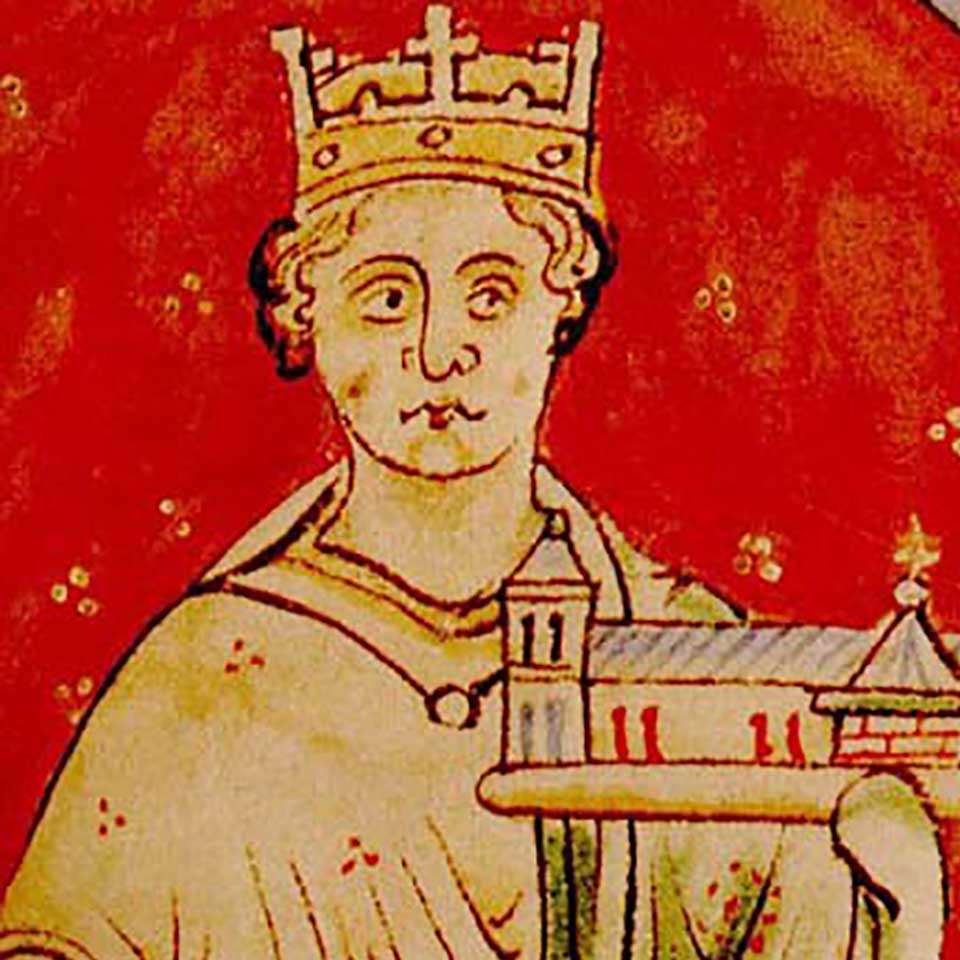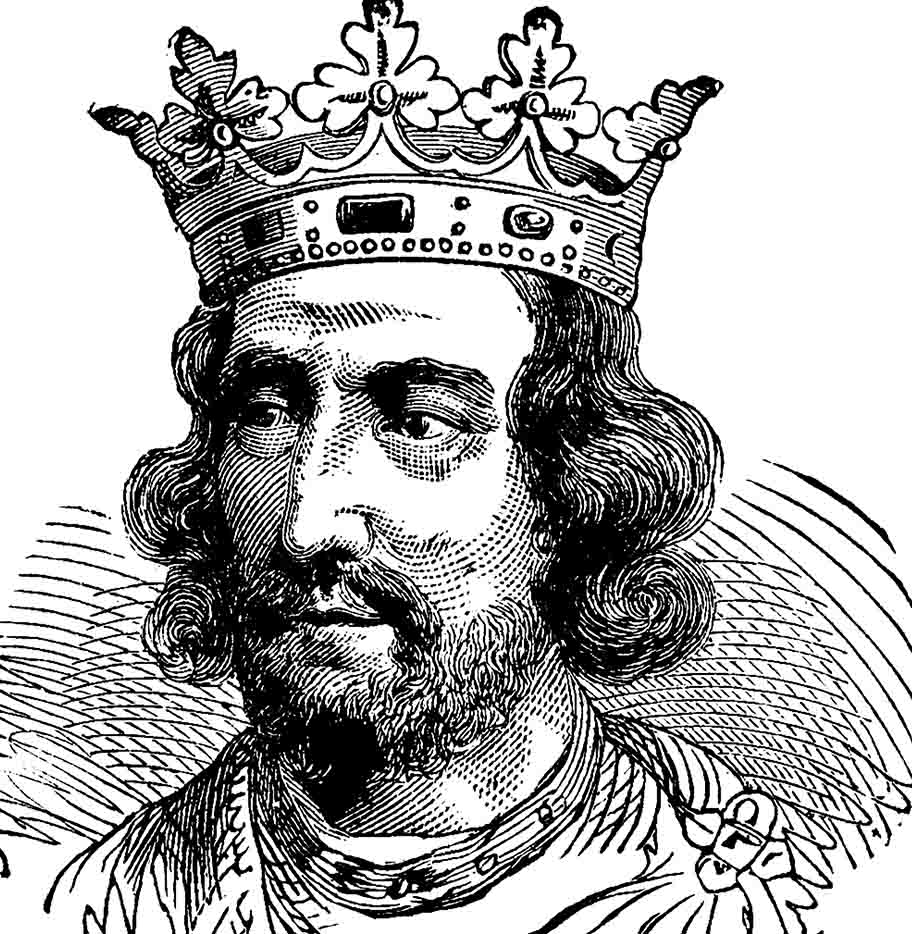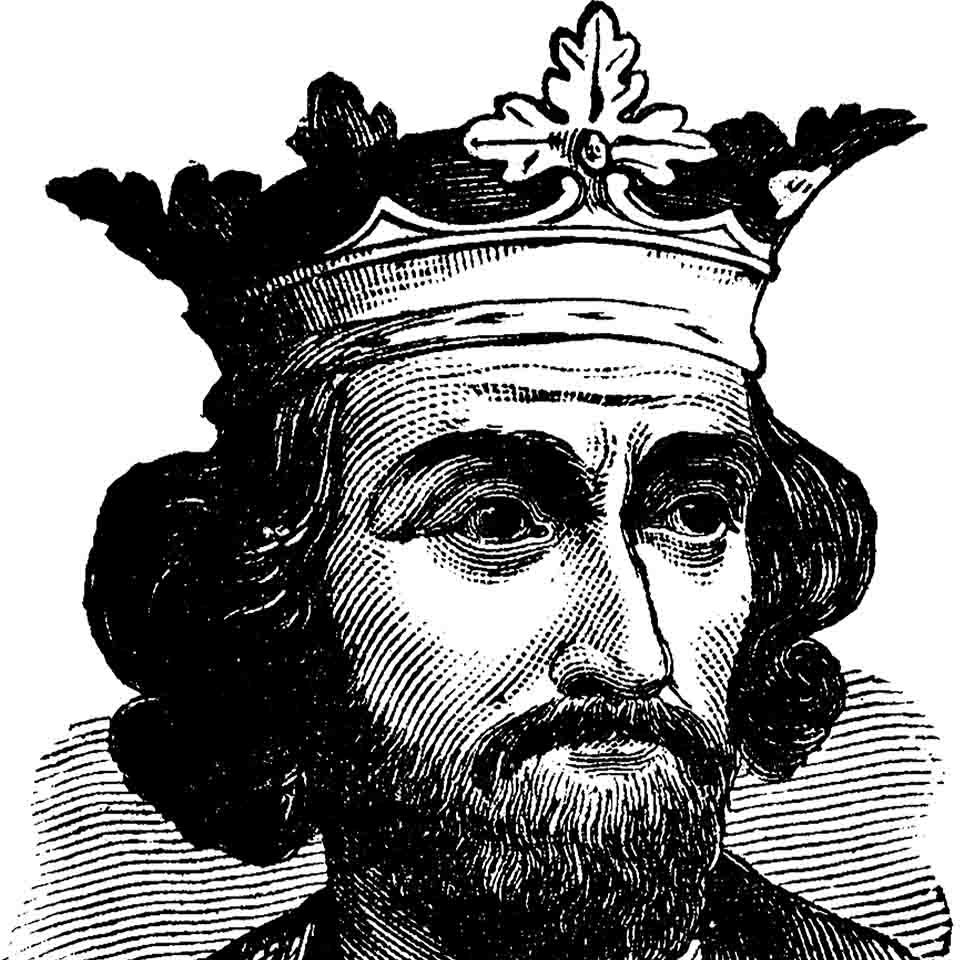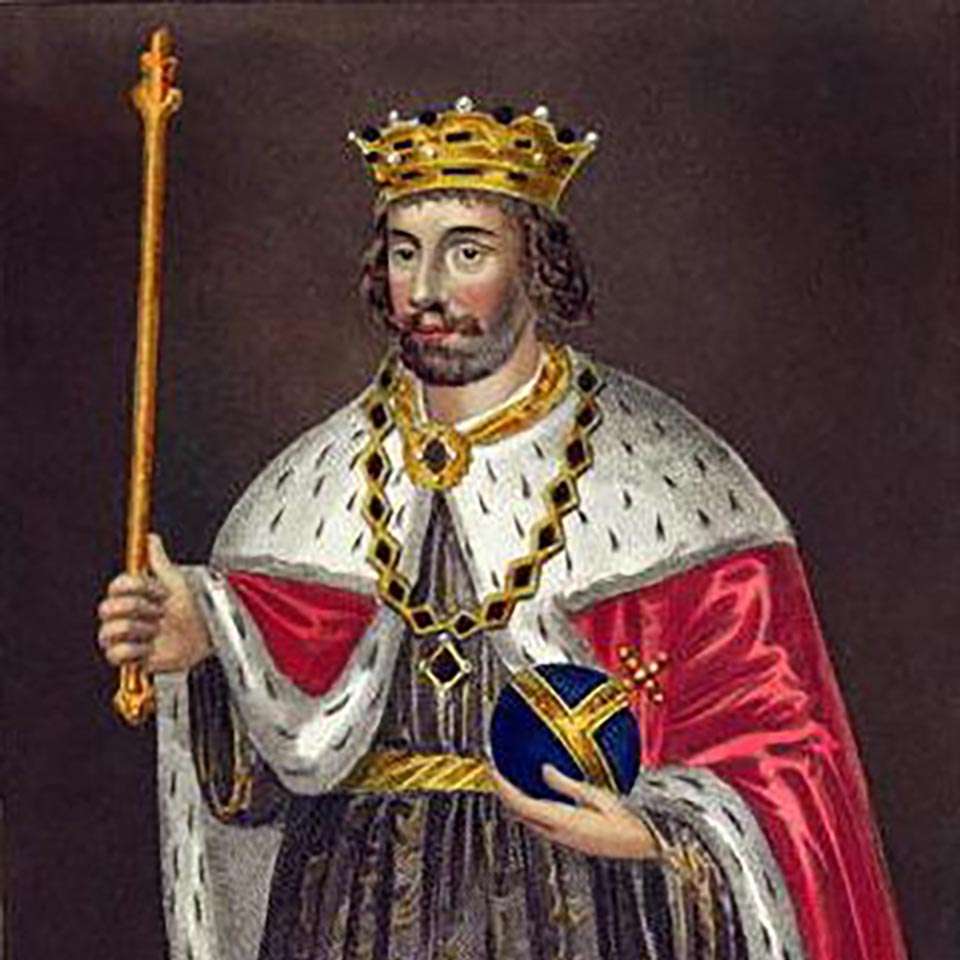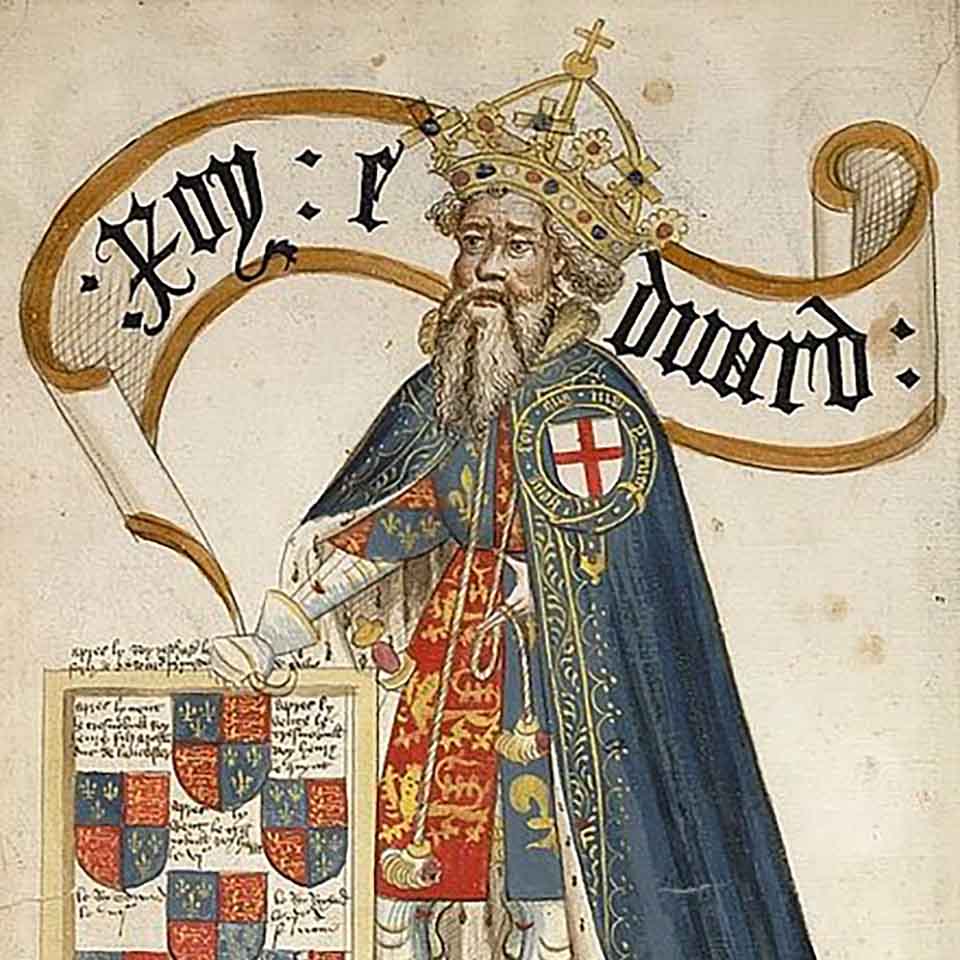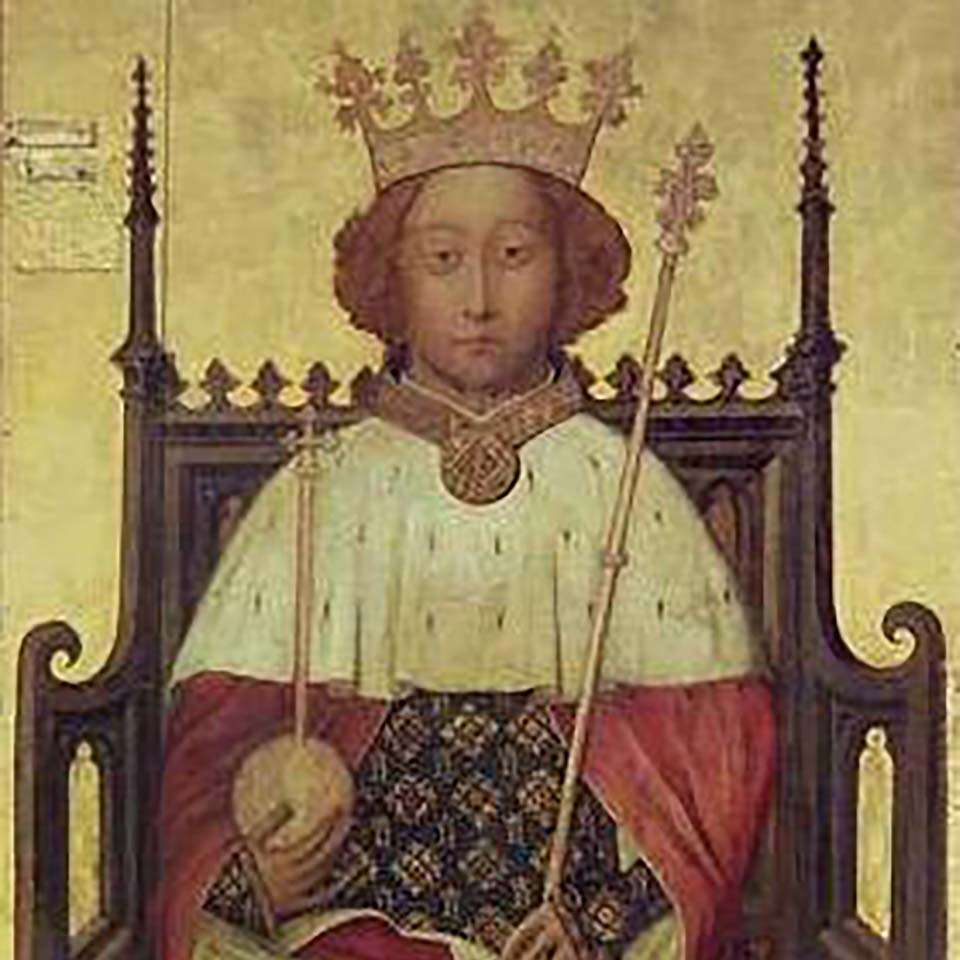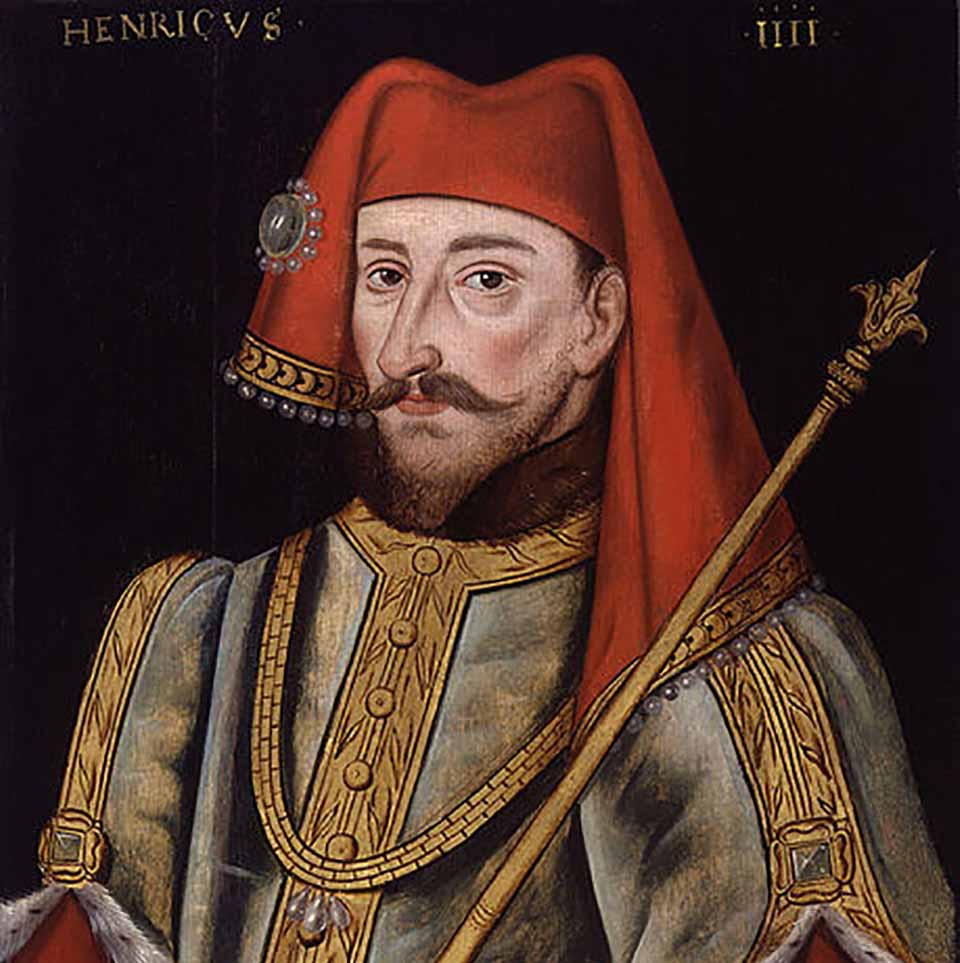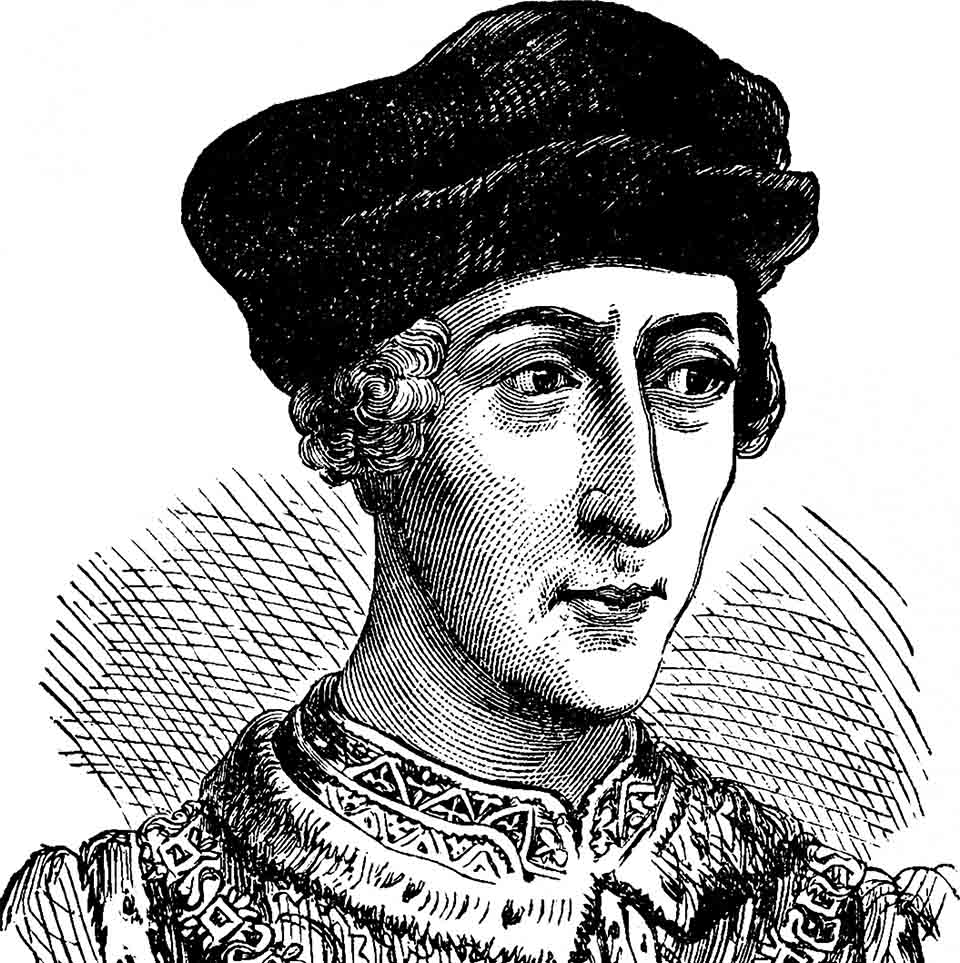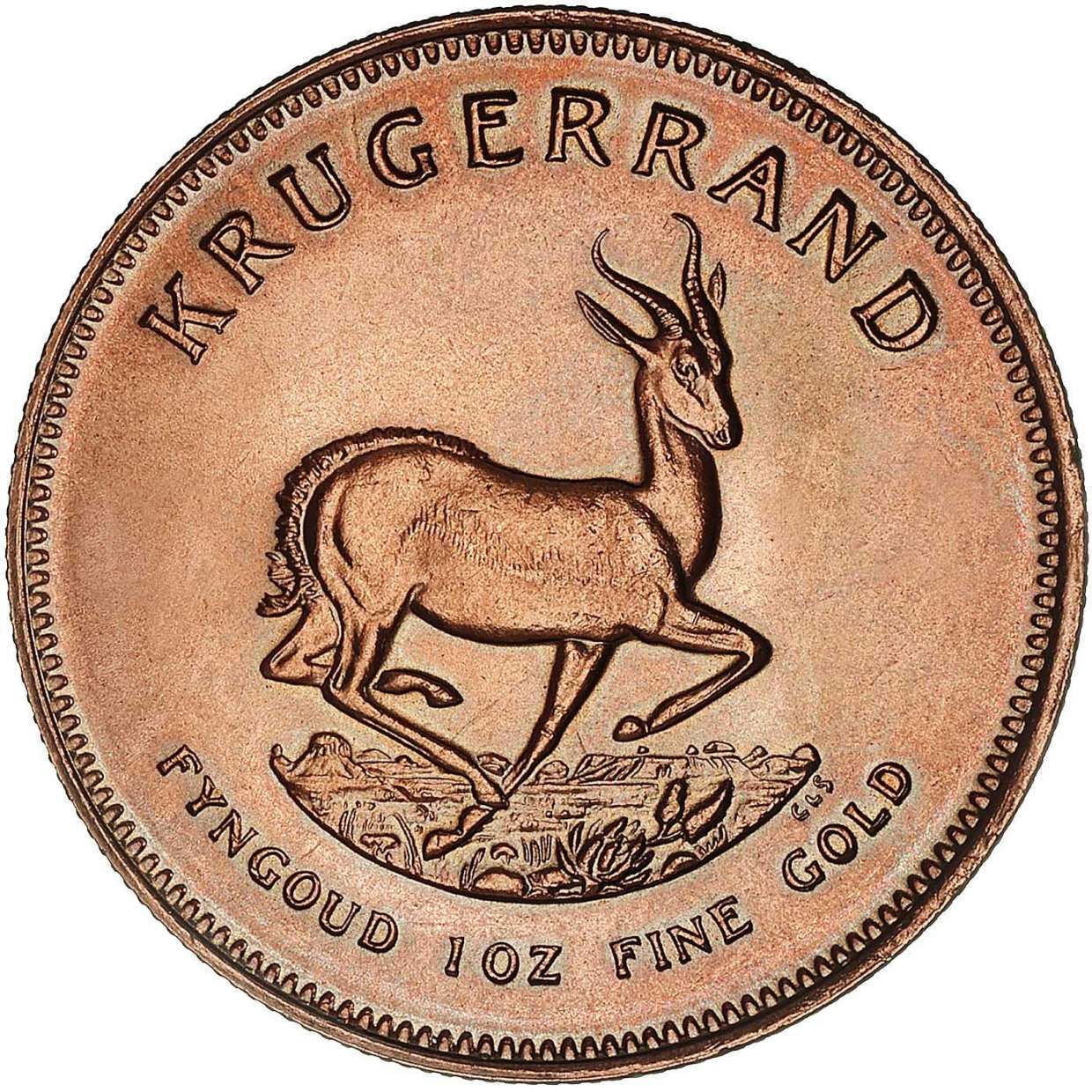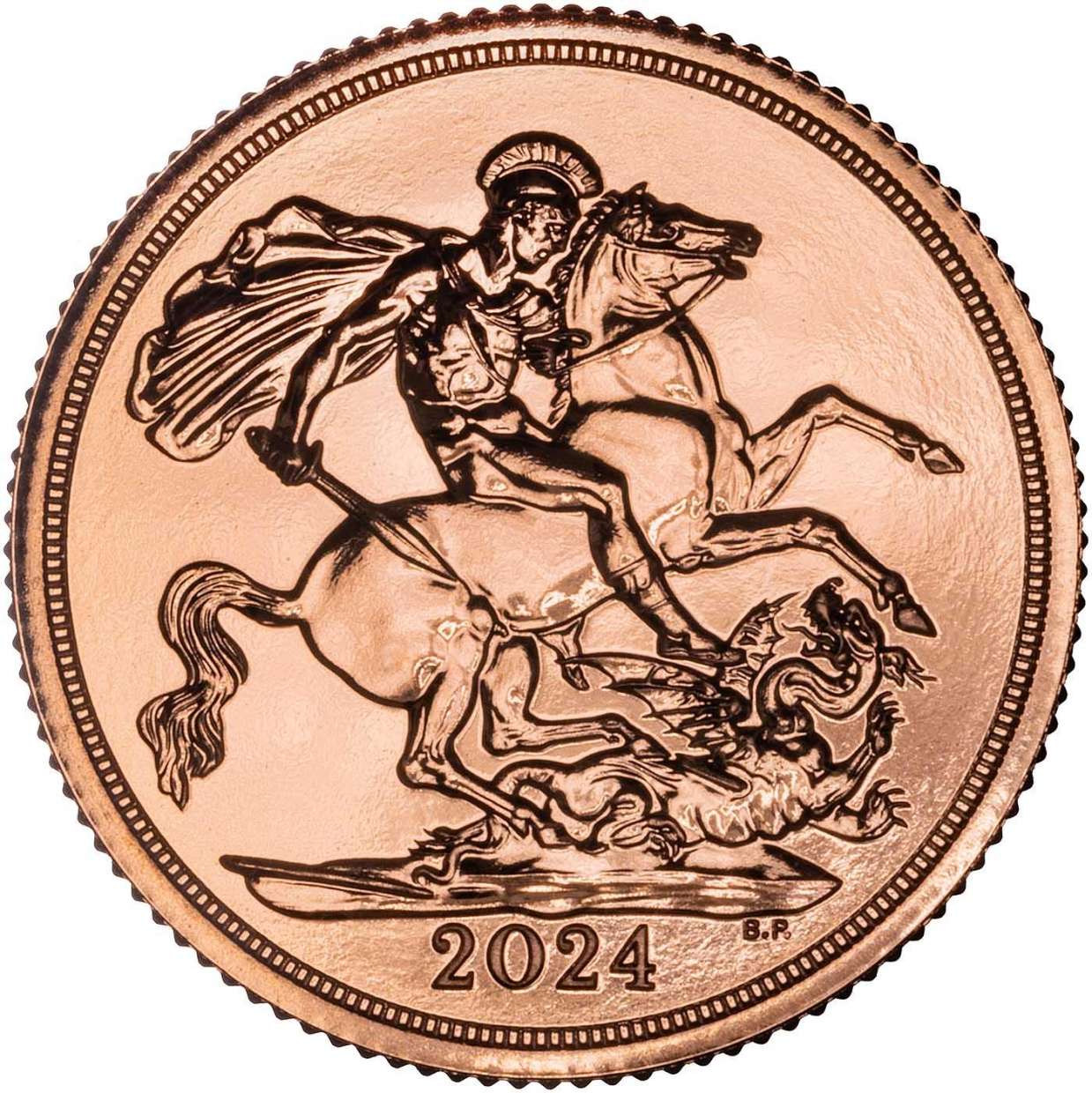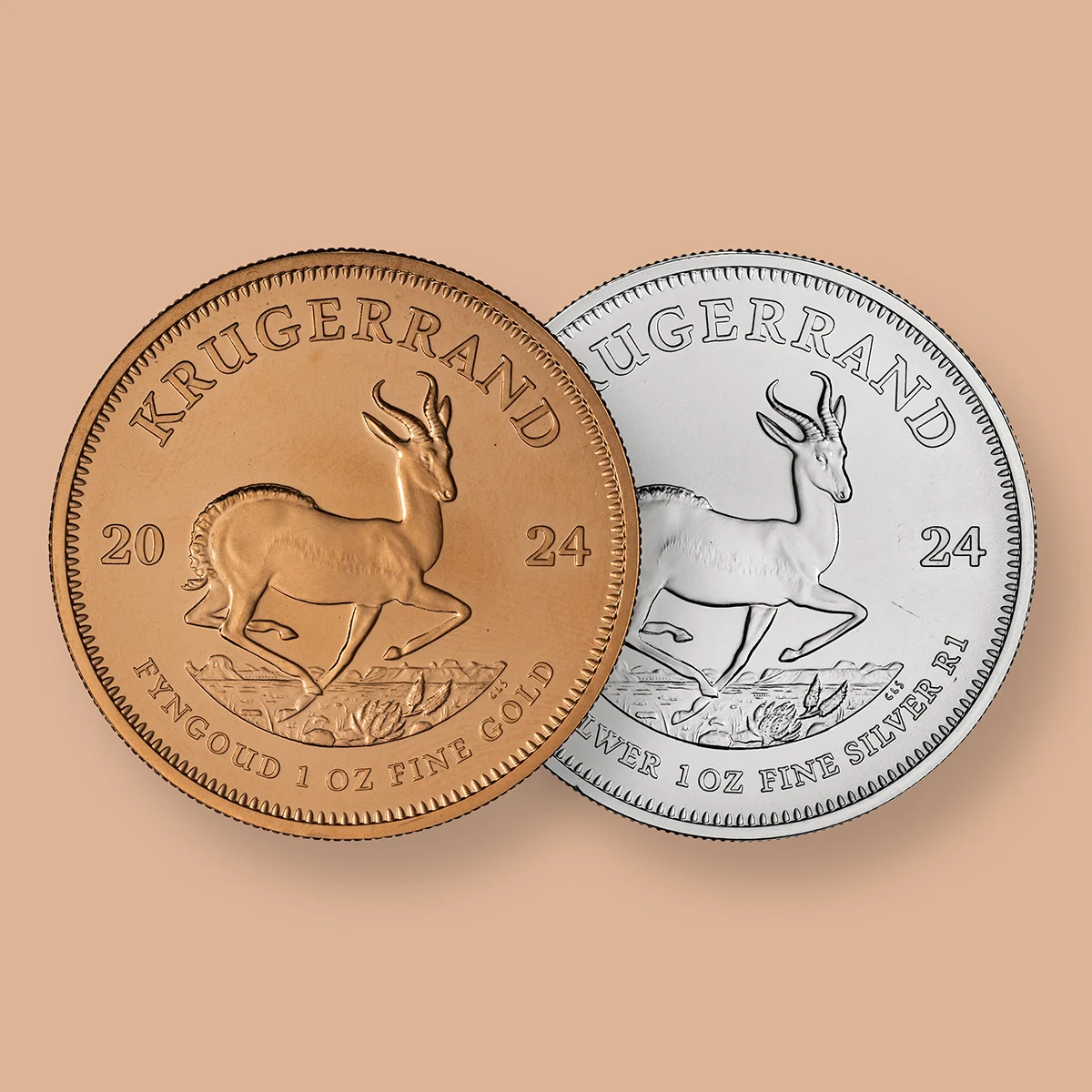King Richard I (1189 - 1199)
Synopsis
Better known as 'Richard the Lionheart', Richard has gone down in history as a chivalrous warrior king and one of England's greatest heroes. He is best known for his exploits as a crusader in the Holy Land, Richard spent more time abroad than in England during the course of his relatively short reign.
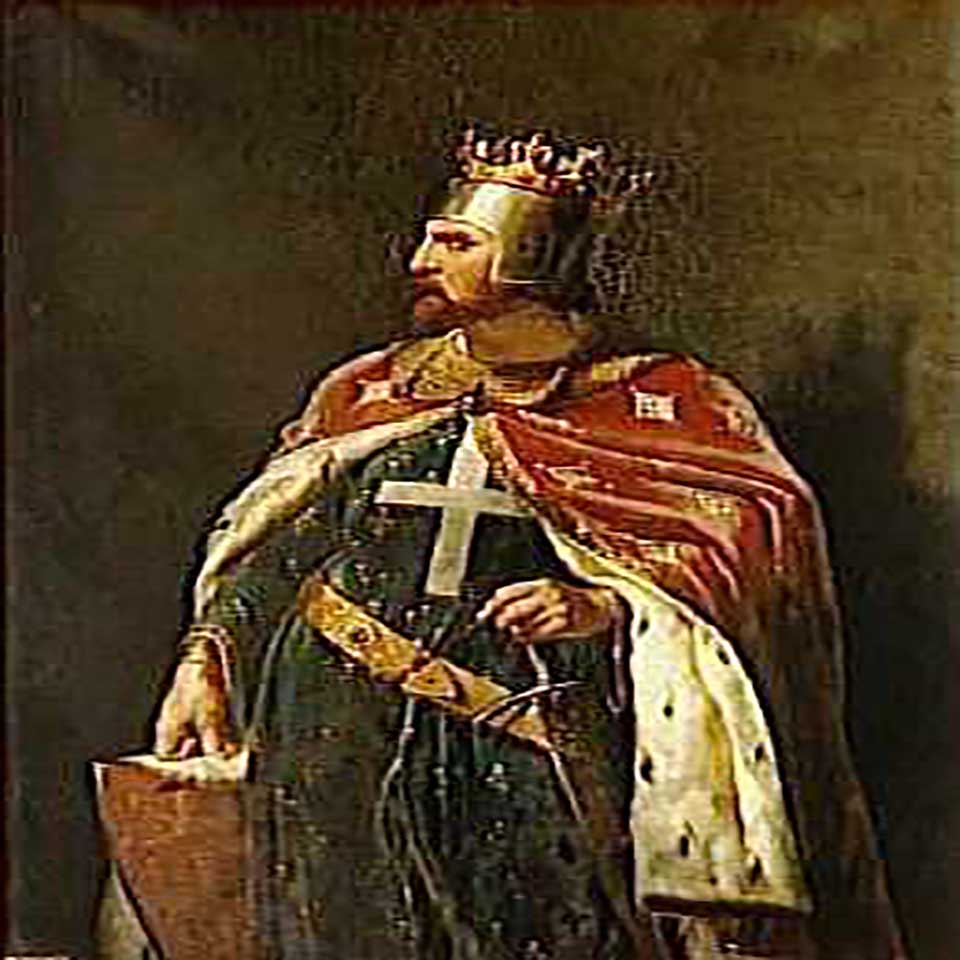
Early Life
Richard was born at Beaumont Palace in Oxfordshire in 1157. Although he was born in England, most sources suggest that he never learned the English language, using French as his first language, although he also spoke fluent Latin.
Even before he became King, Richard's life was certainly eventful. In 1171, Richard's father intended to divide the Angevin Empire between his sons. Under this plan, Richard was to become the Duke of Aquitaine and Count of Poitiers. Richard and his brothers (including his elder brother, Henry the Young King, heir to the English throne) were not particularly grateful and, egged on by their mother Queen Eleanor (who was estranged from her husband) they rebelled against the King on several occasions.
Warrior Prince
Richard was already commanding armies of his own at the age of 16, against his own father. Richard and his elder brother Henry the Young King along with younger brother Geoffrey, Duke of Britanny allied themselves with Louis VII of France, and attacked the King's supporters in France whilst English rebels rose up in England. This initial rebellion against Henry II did not go well for Richard or his brothers, and their mother Eleanor was captured in 1173. The rebellion was crushed by Henry II the following year, when Louis VII abandoned Richard and his brothers by making a separate peace with Henry. Richard subsequently surrendered to his father and begged for his forgiveness. In return for a Royal Pardon, Richard was forced to give up half of his income from his lands, lest he use it to rebel against his father once again.
In early 1175, having made peace with his father, Richard was tasked with crushing the remnants of the rebellion against Henry II, and to this effect, Richard was successful. He besieged and captured the Castillion-sur-Agen. Richard faced rebellions against his own rule in Aquitaine, but succeeded in taking the rebel stronghold of Taillebourg, which had previously been believed to have been impregnable. Richard faced further revolts in 1181 and 1182, and was, in contrast to his later reputation, gaining nororiety for cruelty and rapine, as well as military skill during his campaigns. In 1183, Richard went to war again against his father, and faced his brothers Geoffrey and Henry the Young King (Richard's elder brother) as well as the disgruntled barons of Aquitaine. Richard however, proved to be by far the superior general, and fought them all off, that same year, Henry the Young King died and Richard became heir to the throne of England. However, this did not stop his rebellious attitude towards his father. He allied himself with Phillip II of France against his father, and paid homage to him as his vassal. He repelled yet another invasion by his brother Geoffrey, this time assisted by his other brother, John. Eventually, the surviving brothers combined forces against Henry II along with Phillip II and together, defeated Henry II at the battle of Balans in 1189. Shortly afterwards, Henry II died and Richard became King.
Crusader King
Richard had already pledged to take the cross and go on crusade after the crusader Kingdom of Jerusalem fell at the hands of Saladin at the Battle of Hattin in 1187. Once he had succeeded to the throne in 1189, he immediately made plans to go to go to the Holy Land and recapture Jerusalem. He was joined in this endeavour by Phillip II of France. Kings Richard and Phillip had a practical as well as religious reason to go on crusade together, as although the two had been friends and allies against Richard's father, now that Richard was King of England, the two had reason to distrust each other, and had good reason to believe that in the others absence, they would go to war to recover and expand their territories at the other's expense.
Richard returned to London to be crowned as King of England at Westminster Abbey in September 1189. The coronation did not go smoothly. Perhaps inspired by a sense of crusader zeal, Richard banned Jews from the coronation. This order to exclude the Jews was exaggerated by some and a rumour was spread that Richard had ordered the massacre of all Jews. In the religious atmosphere of the time, the mob was only too happy to carry this order out, and many Jews were lynched or forcibly converted. Fearful of losing control of the situation, Richard issued an edict in an attempt to stop the massacres, but the anti-semitic violence spread to other parts of the country, including York, were a notorious incident at the site of Clifford's Tower took place, whereby every Jew who had taken refuge in the wooden keep died either at their own hand or by someone else's.
”I would sell London, If I Could Find Someone to Buy It”
Despite being the King of England, Richard, in common with his predecessors since the time of William the Conqueror, had little affection for the land of which he was King. He did not like to spend any more time in England than he had to, because he found the weather and the climate too miserable for his tastes, and preferred to spend his time in France, which he considered his true home. Nonetheless, England was a useful source of power, prestige and income, and as crusading was an expensive enterprise, he fully intended to raise as much money as he could from the land he viewed with barely disguised contempt.
Richard's father had already levied a huge tax upon the land, known as the 'Saladin Tithe' which had taxed 10% of all revenue and movable goods (with the exception of arms, armour and horses), only those who 'took the cross' (agreed to join the crusade) were exempt from taxation. Richard however, went even further. Official positions were auctioned off and those already in office forced to pay huge sums of money to retain their positions. Even William Longchamp, Bishop of Ely and the King's regent in his absence, was compelled to pay £3,000 (an unfathomably large sum of money in those days) to remain Chancellor. With vast sums of money, soldiers and over a hundred ships at his disposal, Richard finally departed for the Holy Land in the summer of 1190.
Journey to the Holy Land
Richard did not wait until he arrived until the Holy Land to start fighting. When he landed in Sicily, the people of Messina revolted in response to outrages conducted by Richard's troops. Consequently, Richard attacked Messina, which was looted and burned by his triumphant forces. A month later, in April of 1191, Richard arrived in Cyprus. The island's ruler, Isaac Comnenus , had seized some of Richard's men following the shipwreck of several of some of their ships. Richard responded by conquering the whole island and forcing Isaac to surrender. Cyprus thereafter became a stronghold that was used as a Crusader supply base for many years afterwards. Whilst there, Richard married Berengia of Navarre, who became his Queen Consort. From Cyprus, Richard sailed for Acre, which was already being besieged by Crusader forces led by Phillip II of France. With French (and some German) support, Richard successfully conquered Acre. The victorious Phillip and Richard displayed their banners along the city walls. However, when Duke Leopold V of Austria displayed his own banners alongside those of the French and English kings, Richard and Phillip were appalled at a mere Duke's insolence in placing his banners on an equal footing with their own, and Richard's men had the banners torn down. The bemused Leopold returned home with his forces. However, he did not forget this incident, and Richard's insult would have important consequences later on.
Richard and Saladin
Shortly after the fall of Acre, Phillip also departed the Holy Land for home, pleading illness. Richard was not happy about this, not just because he saw Phillip as abandoning a sacred cause, but also because Phillip would now threaten Richard's lands in France.
Nevertheless, Richard took command of the crusader forces, and confronted Muslim forces under Saladin. Massacring the prisoners taken at Acre so that they would not slow him down, Richard and his crusader army marched towards Jerusalem, harassed by Saladin's mounted archers. On the 7th of September 1191, near Arsuf, Saladin's army attacked more determinedly, but the Knights Hospital counterattacked and drove them off. Richard then ordered his whole army to join the counter-attack and the army of Saladin was routed. Three days later, Richard took Jaffa, a port city not far from Jerusalem itself, and that winter, took and refortified the fortress town of Ascalon.
Treaty with Saladin
Despite Richard's successes, he realised that his forces could not take and hold Jerusalem. He attempted to negotiate with Saladin, but his plan was scuppered by his sister's refusal on religious grounds to marry Saladin's nephew Saphadin. In 1192, Saladin attempted to retake Jaffa but was defeated. Richard for his part attempted to strengthen his own bargaining position by attacking Egypt, but this campaign was a failure. The two sides had reached a stalemate, but Richard had reason to settle matters quickly, as he had received word that his younger brother John and King Phillip of France were plotting with each other to seize Richard's lands. Richard therefore concluded a peace treaty which, amongst other things, agreed to the destruction of Ascalon's fortifications in return for allowing Christian access to the holy sites in Jerusalem.
Capture and Ransom
Richard then sailed for home, but was shipwrecked and forced to travel overland in disguise through the territories of the man he had slighted at Acre, Leopald V, Duke of Austria. Richard apparently blew his cover by eating roast chicken, an expensive dish that was beyond the means of the average poor pilgrim Richard had chosen as a disguise. Richard was seized and handed over to the Duke, who was delighted to have the man who had insulted him so gravely in his custody. Leopald handed Richard over to his feudal overlord Henry VI, Emperor of the Holy Roman Empire, in return for a share in the huge ransom that would be demanded for his release.
Henry VI demanded a ransom of over 150,000 silver marks for his return, which was three times the annual income of England at that time. John had his own reasons for wanting Richard to remain in captivity indefinitely, but he could not prevent their mother from raising the ransom by further plundering the people of England. Despite an offer from John and King Phillip of a further 80,000 marks to delay the release of Richard until Michaelmass (on the 29th of September) 1194, Henry VI refused, and Richard was released in February 1194.
Return and Later Reign
Richard returned to his lands soon afterwards, and John grovelled for forgiveness, which Richard granted. King Phillip was thus abandoned by his ally, and forced to fight alone against Richard, who enjoyed considerable success over his French rival, anchoring this success by constructing a virtually impregnable fortress, Chateau Gaillard at Les Andelys in Normandy.
Death
In 1199, a horde of Roman gold was discovered on the land of one of Richard's vassals, Archard of Chalus. Richard I claimed the treasure as his feudal superior, but he refused. Richard therefore besieged Archard's castle at Chalus. However, Richard strayed too close to the walls of the besieged fortress and was hit by a crossbow bolt hit by one of the castle's defenders. The castle fell soon afterwards, and the archer was brought before the mortally wounded King. Richard was impressed by the Archer's skill, and ordered that he should be released and given 100 shillings. However. Soon afterwards, Richard died. His wishes that the archer be released and rewarded for his efforts were not carried out. Joanna, The King's sister had the hapless archer skinned alive and then torn apart by horses.
Richard's body was buried at the feet of his father, Henry II at Fontevrault, his heart was buried at Roen and his bowels at Poitou.
Legacy
Although Richard I is considered one of England's greatest kings, his reign was a ruinously expensive one for his kingdom. Although one of his last acts was a chivalrous attempt to spare his killer's life, he was for the most part ruthlessly pragmatic in his prosecution of war against his enemies at other times. Richard seemed disinterested in his own Kingdom except for as a source of revenue for his campaigns elsewhere, both in the Holy Land and to secure and expand his holding in France.
Numismatically, Richard did not bother to issue English coins in his own name, and English coins of his reign continued to be issued in his father's name throughout his lifetime. The only coins issued in his own name were those of his French territories.
Coins of Richard I are nevertheless popular due to their associations with this famous warrior king, and are also scarce, as with most pre-Henry III English coins, due to Henry III's mass recoinage which saw the melting down of the short cross issues of his own and earlier reigns.
A history of Kings and Queens of England - Learn more about the Kings and Queens that reigned England throughout the different monarch dynasties (1066-2022).
Related Blog Articles
This guide and its content is copyright of Chard (1964) Ltd - © Chard (1964) Ltd 2024. All rights reserved. Any redistribution or reproduction of part or all of the contents in any form is prohibited.
We are not financial advisers and we would always recommend that you consult with one prior to making any investment decision.
You can read more about copyright or our advice disclaimer on these links.


